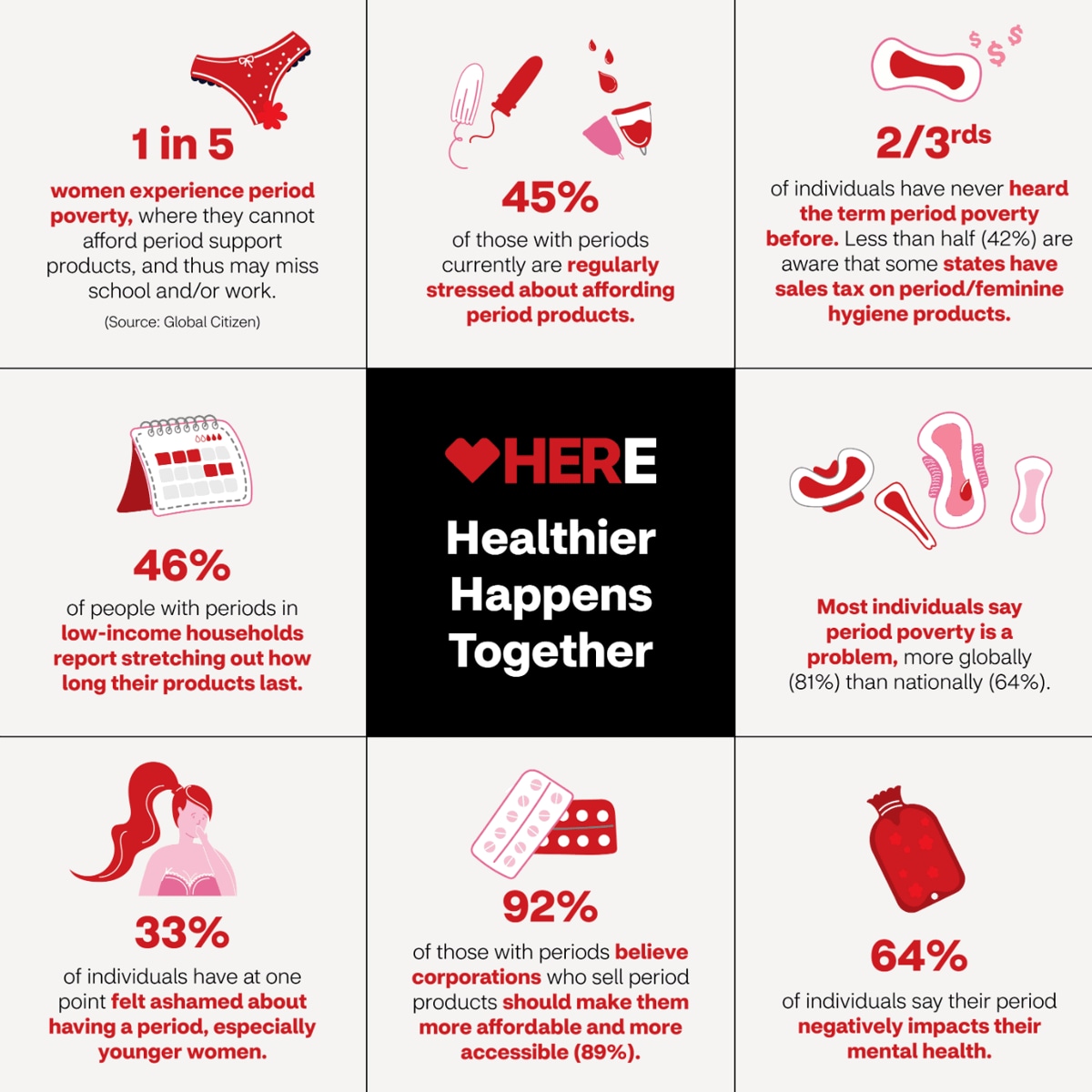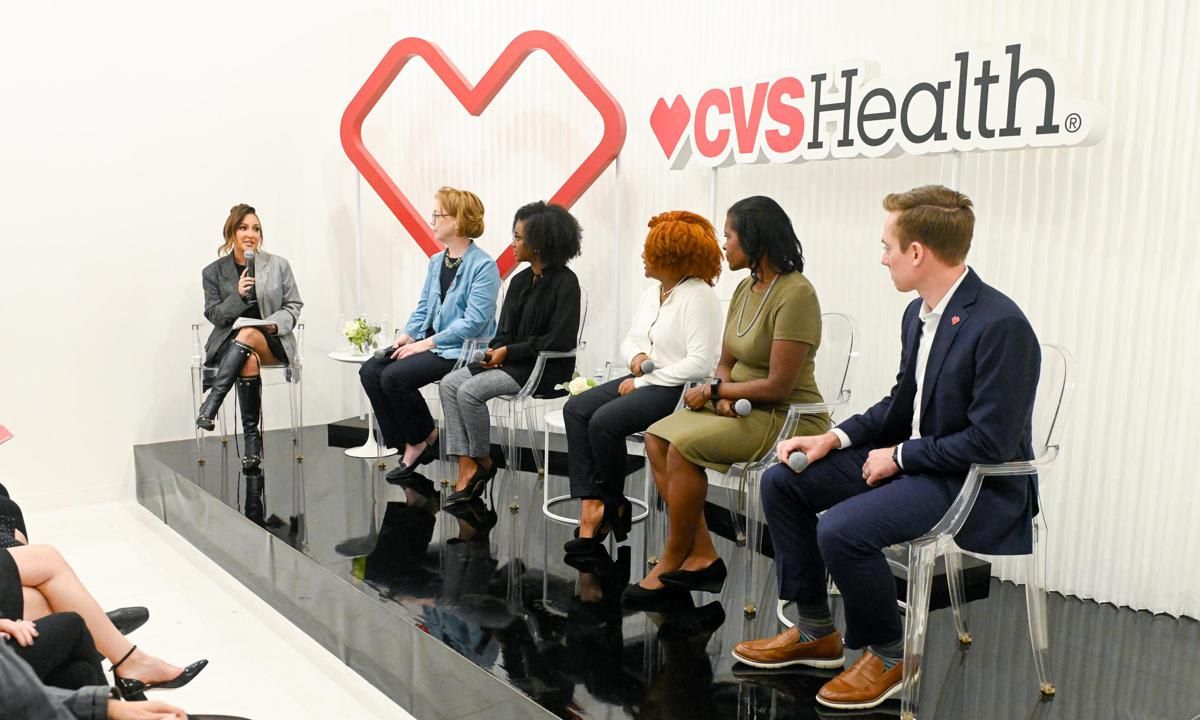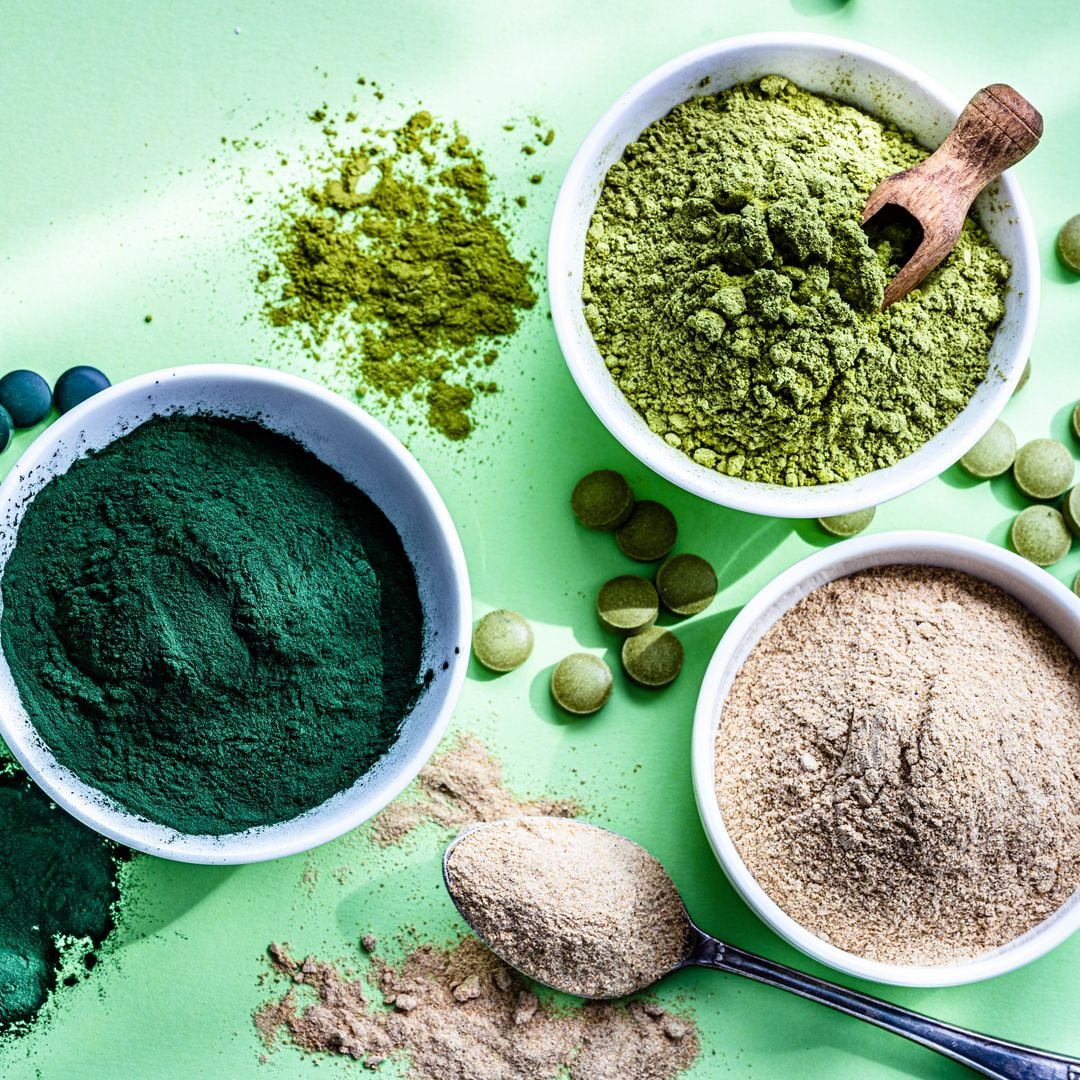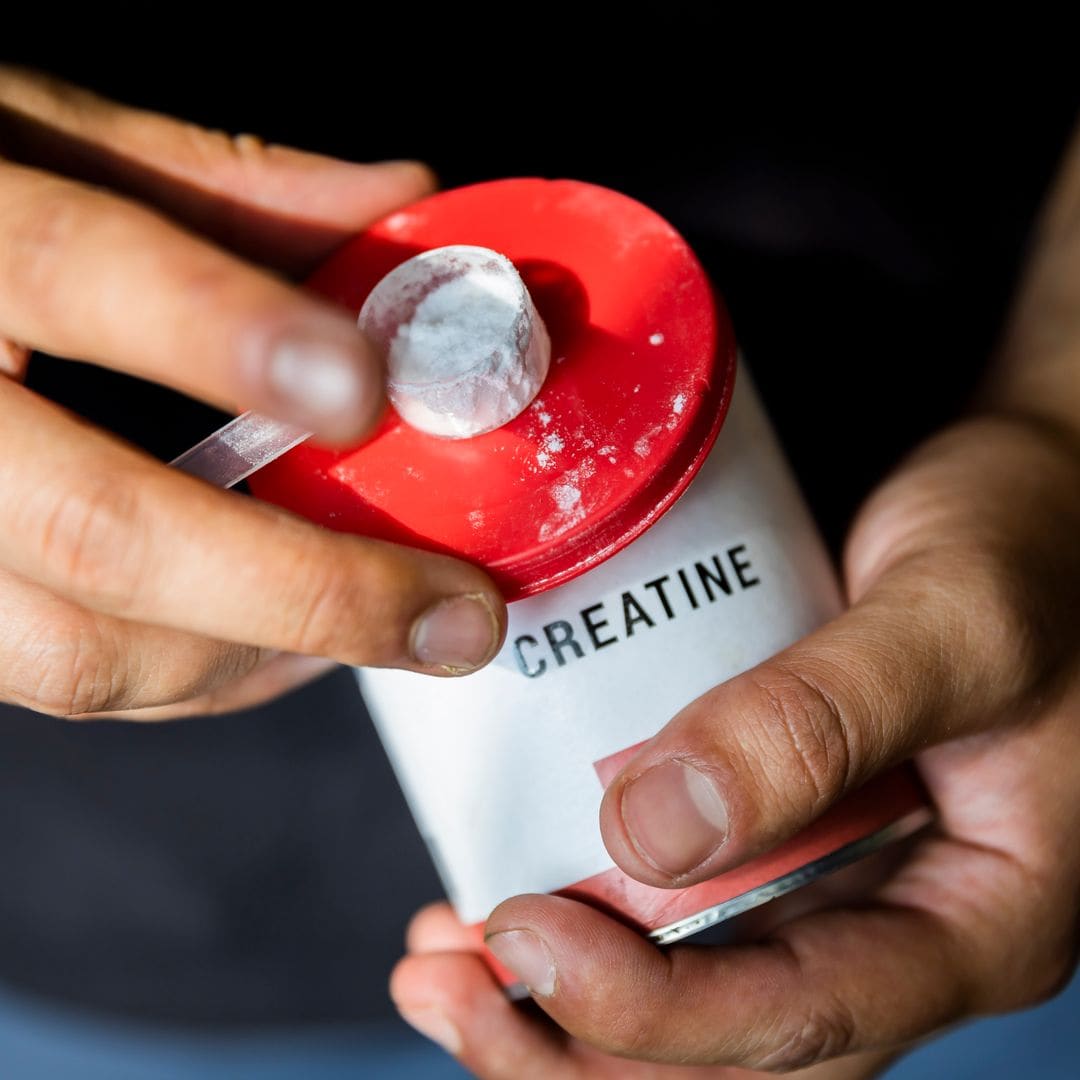Have you heard of period poverty, the “so-called” menstrual tax, and the pink tax? Moderated by Adrienne Bailon-Houghton — an advocate for female health topics — on International Day of the Girl (October 11), CVS Health gathered a group of panelists, including Asia and Laila Brown, co-founders of the grassroots organization 601 for Period Equity, and Lynnette Khalfani-Cox, personal finance expert, speaker, and New York Times bestseller to raise awareness on how women spend a small fortune getting items such as pads, tampons, and razors just because they are targeted to women.
64% of individuals have never heard the term period poverty. And 42% didn’t even know that they were a sales tax on period products. “Period poverty really influences the way that girls and women and others show up in life. How we work, social environments that we live around, and that has health consequences as well,” said Dr. Joanne Armstrong, VP and Chief Medical Officer for Women’s Health and Genomics for CVS Health.
“Periods are normal, and healthy, and it is highly stigmatized,” Armstrong added. “In fact that is one of the most stigmatized conditions for women. But 60% of women and girls say that they are embarrassed, humiliated about having periods. Talking about it. So there’s a lot of stigmas.”
According to Asia and Laila, Mississippi is very at the forefront when it comes to the issue of period poverty. “Mississippi has one of the highest luxury sales tax on period products in the nation at 7% despite the fact that period products are a necessity, not a luxury,” they informed. “So definitely the folks that we serve, especially black and marginalized folks, those who are in prisons, those who are poor, those who are gender expansive, as we’ve discussed before, are at the forefront of this issue.”
“There’s a lack of education there. There’s a lack of adequate, accessible products. Socioeconomic conditions make it a real barrier for those communities. So we serve Mississippi solely, but we want to acknowledge that period poverty is a pervasive issue that affects those across the nation, communities, cultures, and backgrounds,” the philanthropists added. “The current landscape with COVID-19 and inflation only further exacerbated the issue.”
To help eradicate these issues, CVS Health is taking several bold actions related to product pricing and paying the tax on menstrual products in twelve states while providing women with greater access to affordable, accessible healthcare services. These include:
- Reducing the prices of CVS Health store brand period products in our core stores by 25 percent
- Paying the so-called “Menstrual Tax” on menstrual products in our front store in twelve states and partnering with national organizations who are working to eliminate the menstrual tax altogether in 26 states.
- Taking a stance on the “Pink Tax” by ensuring fair and equitable pricing for men’s and women’s comparable products, like razors and shaving cream.
- Offering new menstrual, contraception, and menopause services through MinuteClinic at CVS
- Launching new MinuteClinic Virtual Care services in most states seven days a week — for a variety of women’s health services ranging from general medical needs, from heart health and thyroid monitoring, to birth control consultations and depression screenings.
,type=downsize)






